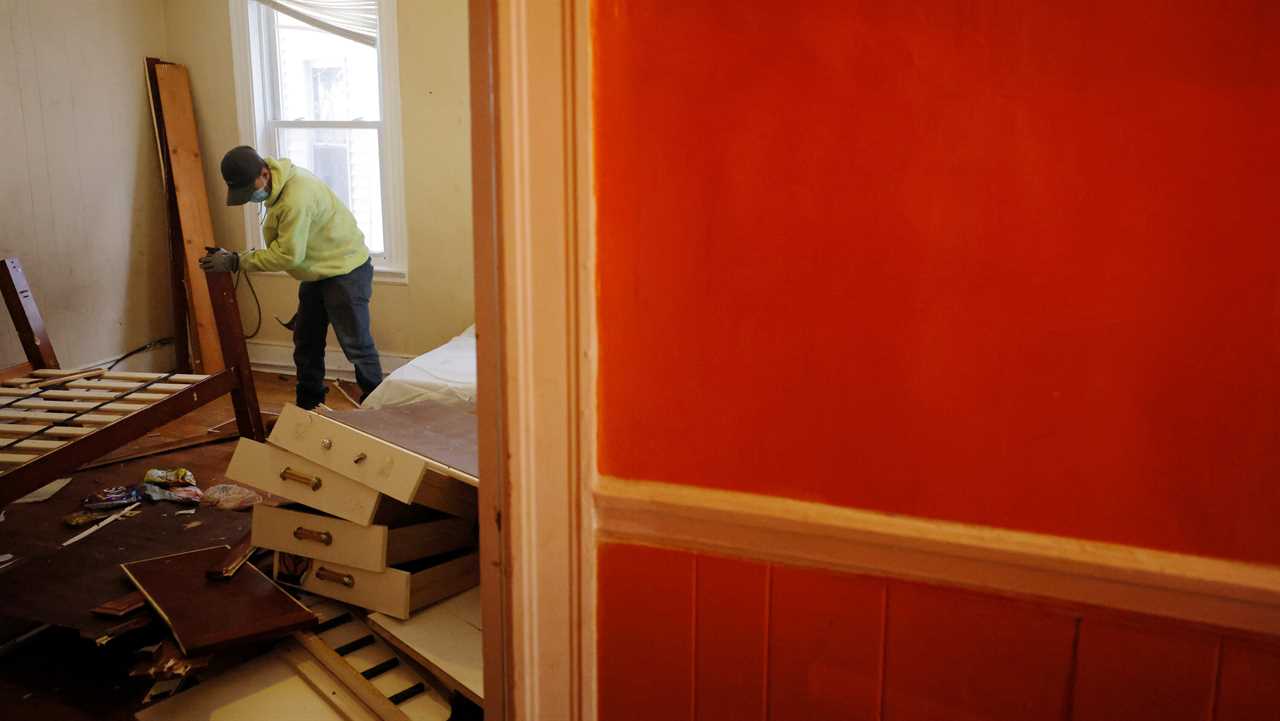
House Democrats scrambled on Friday to scrape up the votes needed to extend the federal eviction moratorium through the end of the year — a long shot bid to keep the freeze from expiring on Saturday — as leaders vented frustration with President Biden for punting the issue to them.
“We would like the C.D.C. to expand the moratorium, that’s where it can be done,” Speaker Nancy Pelosi told reporters at the Capitol, referring to the Centers for Disease Control and Prevention, the federal agency that imposed the moratorium last fall.
“The fact is, almost $50 billion was allocated — $46 billion. Less than 10 percent of that has been spent, around $3 billion,” she said. “Why should the renters be punished for the fact that the system did not put money in their pockets to pay the rent to the landlords?
Earlier in the day, Ms. Pelosi and her allies, led by Representative Maxine Waters, Democrat of California, found themselves at least a dozen votes short of passing a bill to extend the freeze — which has been responsible for dramatically slowing the pace of evictions during the pandemic — according to two aides involved in whipping the votes.
The hangup, the aides said, were objections by moderate Democrats over the length of the extension. Landlord groups have ramped up pressure on lawmakers in recent days, arguing that an extension would unfairly hurt small landlords pushed to the brink of insolvency by unpaid rent.
Even if the House measure passes, it will almost certainly die in the Senate — where Democrats were likely to seek to pass a one-month extension through a voice vote. A single Republican objection would sink it instantly, and the vast majority Republicans in both chambers oppose such an extension.
President Biden on Thursday threw the matter to Congress, urging Democrats to quickly enact a second one-month extension of the moratorium on residential evictions specifically, citing the need to buy time to stand up a $47 billion rental relief program plagued by delays and red tape.
The decision to place responsibility on Congress — just two days before the freeze expires — took Democratic leadership by surprise.
White House officials, under pressure from tenants’ rights groups, had agreed last month to a one-month extension of the ban just ahead of its previous expiration date of June 30.
Soon after, the Supreme Court rejected a challenge by landlords, saying it would allow the moratorium to continue until July 31, as planned, to give the Treasury Department and states time to disburse cash to landlords to cover back rent accrued that tenants did not pay during the pandemic.
But Justice Brett M. Kavanaugh wrote in a concurring opinion that any future extension of the moratorium would require Congressional action.
On Thursday, Jen Psaki, the White House press secretary, citing the steep rise in coronavirus infections around the country, pressed Congress to extend the freeze for another month to avoid a health and eviction crisis.
“Given the recent spread of the Delta variant, including among those Americans both most likely to face evictions and lacking vaccinations, President Biden would have strongly supported a decision by the C.D.C. to further extend this eviction moratorium,” she wrote in a statement. “Unfortunately, the Supreme Court has made clear that this option is no longer available.”






